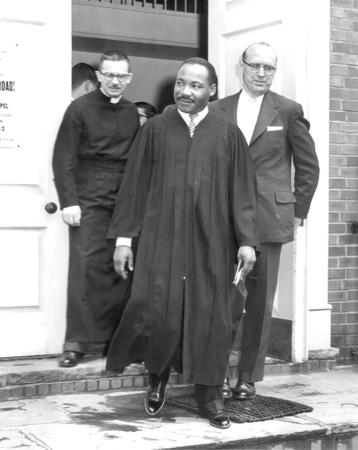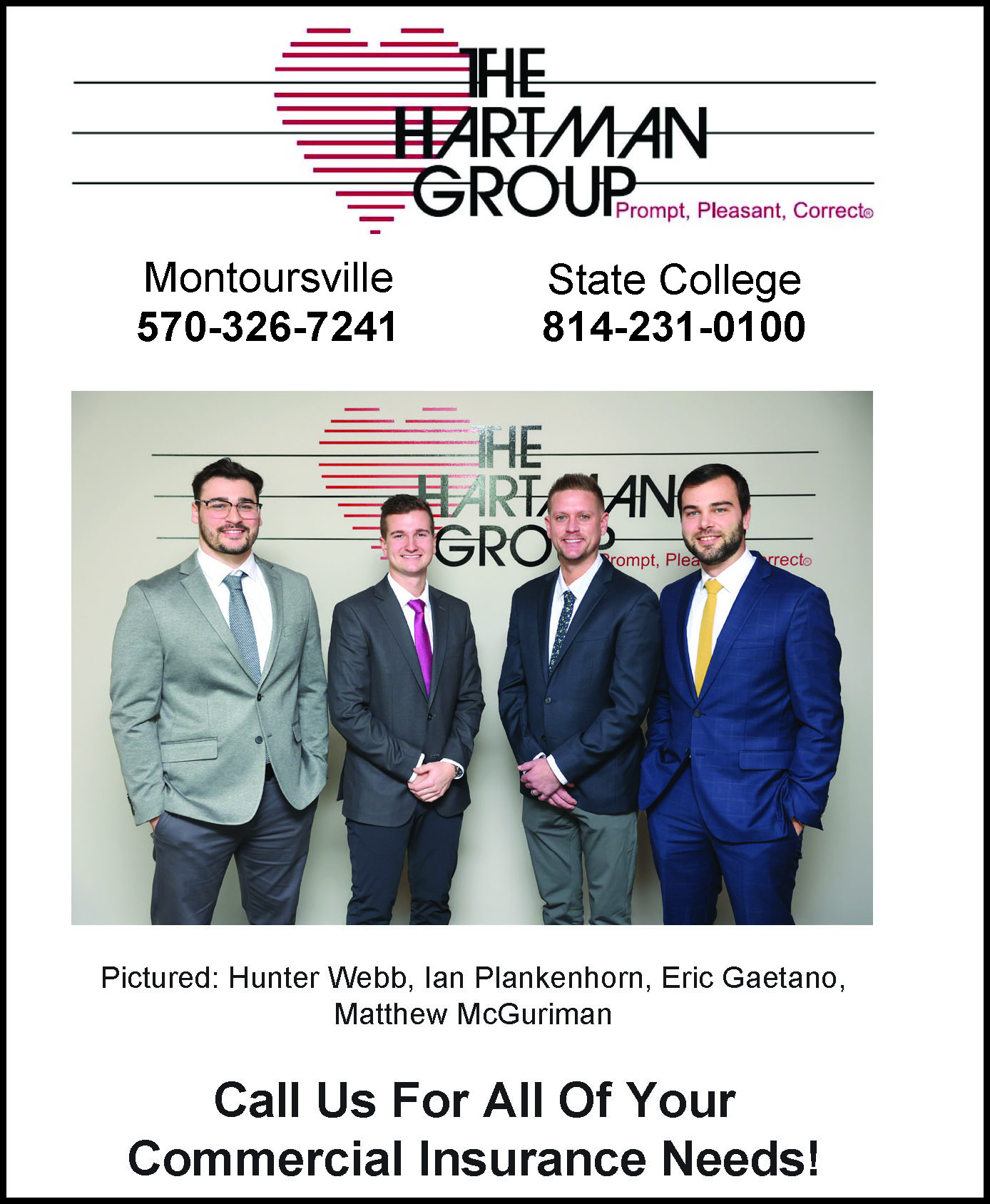Five years before Dr. Martin Luther King Jr. gave his immortal “I Have A Dream” speech, he spoke here in Williamsport to students at a chapel service at Clarke Chapel at Lycoming College on April 23, 1958. He was not yet the world-renowned iconic figure that he would later become. He was then head of the Montgomery Improvement Association, the organization that coordinated the bus boycott in Montgomery, Alabama in 1955 and 1956.
One woman who was a student then, has a particularly vivid memory of Dr. King’s appearance at Lycoming. Ruth Perry Hodge was a senior at Lycoming and about to graduate that semester. Her father, the Rev. Houston Perry, was pastor of a local church, the Shiloh Baptist Church. She had the thrill of meeting King following his speech.
“Dr. King spoke at our chapel service and I was a member of the college choir that performed before the speech and Floyd Todd and I were the only African-American members of the choir. Dr. King asked to speak with the two of us after the speech,” Hodge told Webb Weekly. “It was a thrill to meet him and he signed my program from the chapel service and I still have it and it was one of my prized possessions. His speech was awesome and very inspiring.”
Hodge remembers growing up under Jim Crow segregation in Virginia and Dr. King’s speech made her more determined than ever to do what she could to bring about racial equality and to knock down the walls of segregation.
“The title of Dr. King’s speech at Lycoming was “Facing the Challenge of A New Age” and I wanted to do everything I could to make that ‘new age’ a positive one for African-Americans,” Hodge said.
Hodge would go on to work at the Army War College and the Military History Institute at Carlisle, first as a secretary and later as a librarian. She was inspired to earn her Master’s in Library Science. She would eventually work as an archivist at the Pennsylvania State Archives before retiring in 2001.
She was a strong advocate for the study and appreciation of African-American History and helped to develop a guide to significant African-American historical sites in Pennsylvania.
Dale Bower, also a member of the choir has strong memories of King’s speech.
“I remember looking up and seeing the balcony of Clarke Chapel filled with black people from the local black community,” Bower recalled. “Dr. King’s speech was very inspirational. It was a great experience for me. I remember one of things he said was, ‘if you can’t be a tall oak on the mountainside, then the best spruce in the valley you can be.’ I think that was his way of telling us to do the best we could be in our lives.”
Bower said there was a recording of the speech but unfortunately, it was either lost or stolen.
Bower graduated from Lycoming in 1960 and went on to work at the college for more than 30 years as the Director of Planned Giving and later as the Alumni Director.
Published reports at the time of Dr. King’s speech at Lycoming reported, “We in the 20th Century are experiencing the birth of a new age; we are privileged to live in one of the most momentous ages of all history— an age when a new world is coming into being,” King said. “We stand between two ages,” he said, “the dying old and emerging new; an age in which inter-group and interpersonal living becomes a possibility.”
Cautioning listeners that the people of the world must not allow technology to outdistance theology, Dr. King emphasized the need to keep moral and spiritual progress abreast with scientific and theological progress. “We must be ready for the challenges of the new age — ready with understanding and goodwill — both the oppressor and oppressed he added, continuing with the thought that we must meet physical force with soul force, work passionately and unrelentingly for first class citizenship.”
He told students, “Seek to discover your life’s work, and do it well. We must be ready to face the opportunities and challenges: whatever your life work turns out to be — do it well.”
The night before King’s speech at Lycoming, he spoke at Bucknell and then came to Lycoming and was the guest for dinner with a small group of Lycoming faculty members. Later he participated in a question-and-answer period in the Science Auditorium on campus.
A luncheon in King’s honor was held at the Lycoming Hotel after his speech before he went onto Philadelphia on his way to his home in Montgomery, where he was pastor of the Dexter Avenue Baptist Church.
King was invited back to speak at Lycoming College during the early 1960s but the press of events of the Civil Rights Movement and his leadership of the Southern Christian Leadership Council prevented him from doing so.





Leave a Comment
Your email address will not be published. Required fields are marked with *